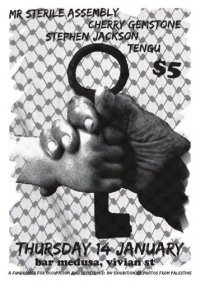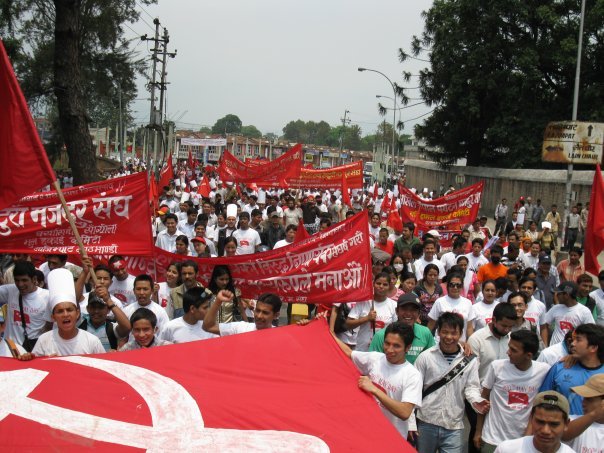[youtube=http://www.youtube.com/watch?v=iGCfiv1xtoU]
Latin America’s Decade
January 5th 2010, by Emir Sader – Pravda, reprinted on Venezuelanalysis.
The 1990s was the worst that America has ever lived. The debt crisis — with its consequences: IMF, letters of intent, tax adjustments, etc… — Military dictatorships opened the way for it to impose neoliberal governments in almost every continent. We became the world region with the greatest amount of neoliberal governments and their more radical procedures.
The responsiveness of Latin America has proven its ability to dramatically reverse this situation: we become the region that concentrates governments elected by the rejection of neoliberalism, which houses regional integration processes irrespective of the USA, which promotes innovative ways of integrating out the mercantile.
Latin American leaders such as Lula, Hugo Chavez, Evo Morales, Rafael Correa, among others, are regarded internationally for their ability to embody the needs of their people. Bolivia, Ecuador and Venezuela have joined Cuba, with countries that — according to UNESCO — ended illiteracy.
Wgtn: Palestine gig
Slideshow: Paul Robeson sings “Joe Hill”
[youtube=http://www.youtube.com/watch?v=n8Kxq9uFDes]
Setting the record straight: did the Nepali Maoists ban strikes?
Reprinted from Comrade Alastair.
Nepal’s Maoists are often accused of being anti-worker, Stalinist, bourgeois nationalist and so on by many on the Western ‘left’, particularly anarchists and Trotskyists. As ‘evidence’ towards this, it is often claimed that while in government earlier this year, they ‘banned strikes’.
Let’s set the record straight.
The Maoists never banned strikes. All the militant, class struggle fighting unions are Maoist unions, and since their change in tactics in 2006 and the shift of the struggle to the urban areas the Maoists have essentially taken over the trade union movement in Nepal, as well as the bulk of the student unions. They regularly lead strikes for both political issues and bread and butter issues like pay and conditions. They have strongholds amongst the teachers, hotel workers, petrol workers, workers in many SEZs and industrial zones, and more. They never stopped leading strikes – they just called a three day general strike across Nepal!
Continue reading “Setting the record straight: did the Nepali Maoists ban strikes?”
Sue Thompson’s Paper Tiger
The Nevada girls’ big stomper from ‘64 (contributions from The Kasama Project and Ian Anderson.)
[youtube=http://www.youtube.com/watch?v=cBJrrz6mKcs]
“Now U.S. imperialism is quite powerful, but in reality it isn’t. It is very weak politically because it is divorced from the masses of the people and is disliked by everybody and by the American people too. In appearance it is very powerful but in reality it is nothing to be afraid of, it is a paper tiger. Outwardly a tiger, it is made of paper, unable to withstand the wind and the rain. I believe the United States is nothing but a paper tiger.”
From Mao Zedong U.S. IMPERIALISM IS A PAPER TIGER, July 14, 1956 [Part of a talk with two Latin-American public figures.]
Safer Communities Together’ Blues (2009) Don Franks
Reviewed by Marika Pratley The Spark Dec 2009/ Jan 2010
In the album ‘Safer Communities Together’ Blues Don Franks has successfully interwoven politically revolutionary words with his compositional abilities. Recorded in a student flat in Aro Valley, Wellington, ‘Safer Communities’ is comprised – musically – of a wide range of instruments which Don plays, including acoustic guitar, electric guitar, banjo, and blues harp. There are also contributions by many other Wellington artists (bass, backing vocals, lead guitar, drums).
Don picks up from the tradition of political folk, but his work is distinctive because it discusses contemporary issues directly relevant to people in New Zealand today. It is an important historical catalogue of not only the recent Labour government, but the transition into the new National government which took over in 2008, and the various struggles that activists, workers, and unions have had to fight in that time period. Some songs are written for specific pickets or issues (such as One more Thursday in Black) whereas some are more general in their detest of both Labour and National (I hate the Labour Government, and Fuck John Key). Many of his songs have hints of tongue-and-cheek humour, such as the wedding march riff at the beginning of Talking Civil Union, making it a very entertaining album to listen to. Continue reading “Safer Communities Together’ Blues (2009) Don Franks”
Iraq Veteran Speaks Out
[youtube=http://www.youtube.com/watch?v=akm3nYN8aG8]
Reposted from Kasama.
Climate Camp day of action
[youtube=http://www.youtube.com/watch?v=p1Ym3FmxOEs]
A group of activists from Aotearoa Climate Camp ’09 today blockaded the stock exchange in opposition to carbon trading, a scheme which allows finance capitalists to benefit from environmental degradation. Protestors chanted the slogan, “Resist! Resist! Fight the capitalists!”
Activists were detained by the police force, then released without charges.
Climate Change Leaflet attached.
The Ballad of Bantam Billy
The Ballad of Bantam Billy: The political life and times of Bill Perkins Jack Perkins
Review by Don Franks The Spark Dec 2009 – Jan 2010
My most entertaining and memorable read this year has been a self published family account titled “The Ballad of Bantam Billy”. The author is Jack Perkins, Bill Perkins’ son. “Bantam Billy” was the nickname Lancashire coal miners gave to a short statured young workmate who became – and remained for life- an uncompromising fighter for socialism. “ If dad sensed any challenge or disrespect for his beliefs he was instantly and fearlessly outspoken. There were never any beg-your-pardons in his outbursts. I remember a bus trip when some unsuspecting passenger slighted the Soviet Union. Dad’s volcanic response turned heads, including the driver’s who brought the crowded vehicle to a temporary halt while things calmed down.” Continue reading “The Ballad of Bantam Billy”



